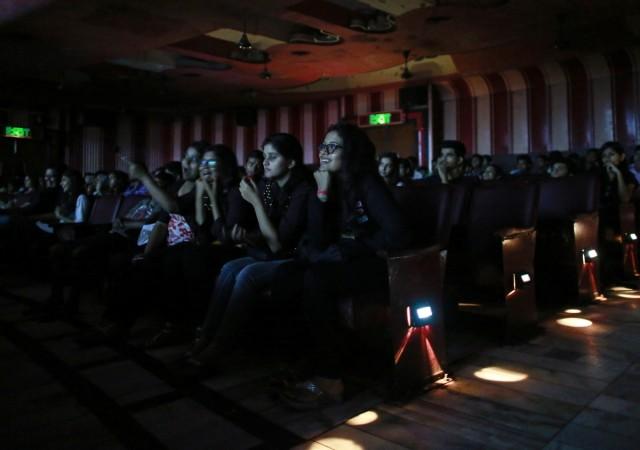
PVR and Inox Leisure shares gained in the range of 6.50 percent to almost 10 percent on the Bombay Stock Exchange (BSE) on Friday, two days after the Rajya Sabha passed the Goods and Services Tax (GST) Bill.
Multiplexes are seen as benefiting from the GST regime as the taxes on movie tickets are poised to come down from the current levels of about 25 percent to about 18 percent.
PVR shares rose 9.85 percent on Friday to close at Rs. 1,218.45 apiece, while Inox Leisure ended at Rs. 267.45, up 6.49 percent from its previous close.
Entertainment tax levied by states on cinema tickets are about 25 percent, though in Tamil Nadu it is 30 percent.
"PVR and Inox pay about 22 percent net entertainment taxes. With GST rate expected at 17-18 percent, these firms' taxes would decline, but this benefit will be partially offset by an increase in VAT. Net-net, we expect about 200-300bp EBITDA margin growth for these firms at a GST rate of 17-18 percent," BoAML had said earlier in its note.
Another brokerage said that PVR could see its pre-tax profit going up by about 5 percent if GST rate is fixed at 18 percent.
"PVR will benefit with ~4-5% EBITDA margin expansion, if GST rate is at 18%. Stock price rally of 33% over the last 3 months partially factor-in benefit of GST," Emkay Global Financial Services Ltd. said in a note early this month.
PVR operates 552 screens at 127 properties in 47 cities across India, while Inox Leisure has 423 screens in India, including the launch of its recent property in Bengaluru (Bangalore) in June this year.
Cinepolis India, the Indian arm of Mexican multiplex chain Operadora Cinepolis SA de CV, operates about 240 screens and had indicated at plans to increase it to 400 by December 2017. It also plans to open new screens under the Fun Cinemas brand it acquired last January.
Another chain, Carnival Cinemas, operates about 324 screens in 89 Indian cities.
The GST (122nd Constitutional Amendment) Bill was passed unanimously by the Upper House of the Parliament on Wednesday and will be taken up again by the Lok Sabha next Monday in view of the amendments made that have to be ratified. The Lok Sabha had passed the earlier version of the indirect tax reform legislation last year.

















